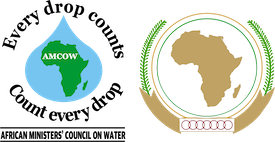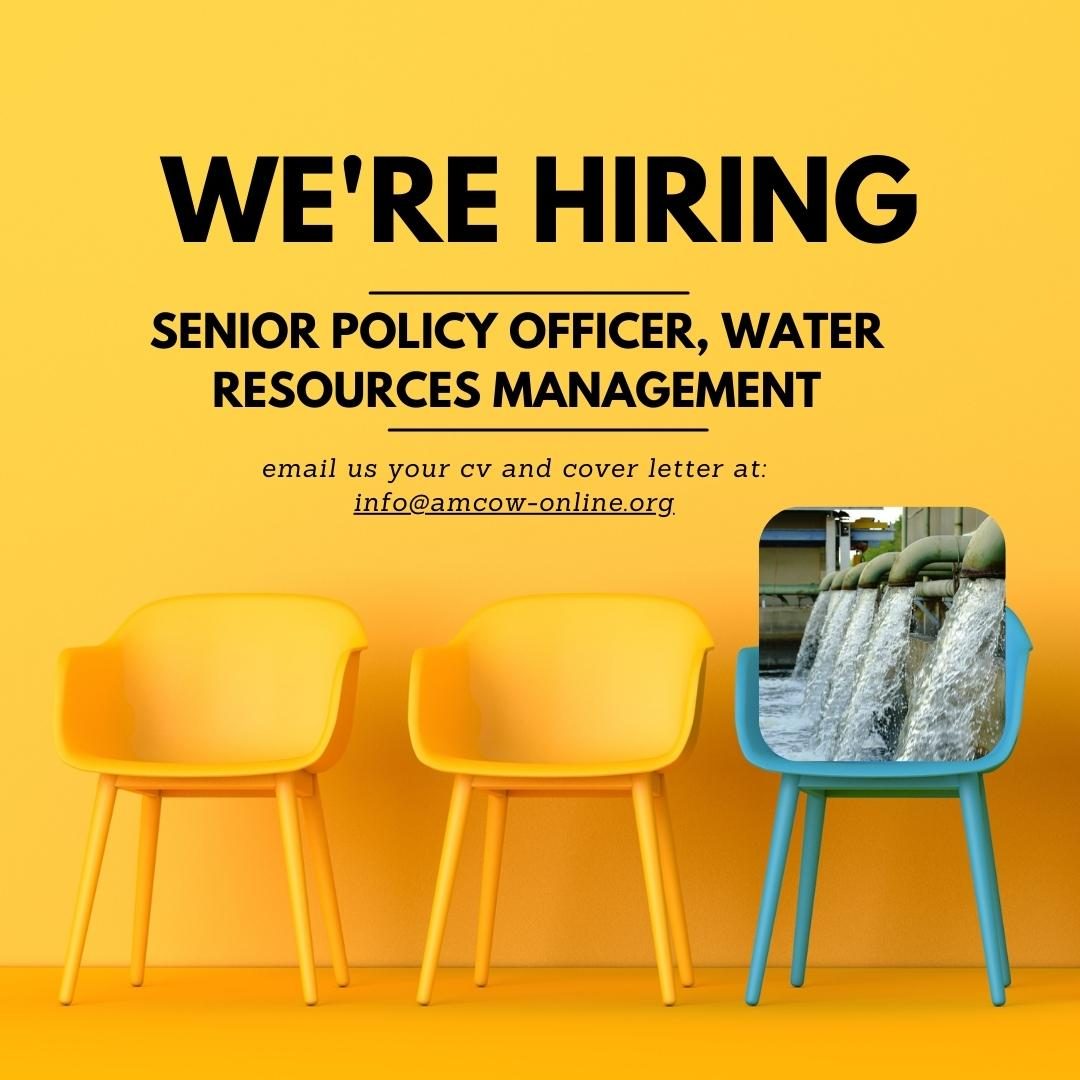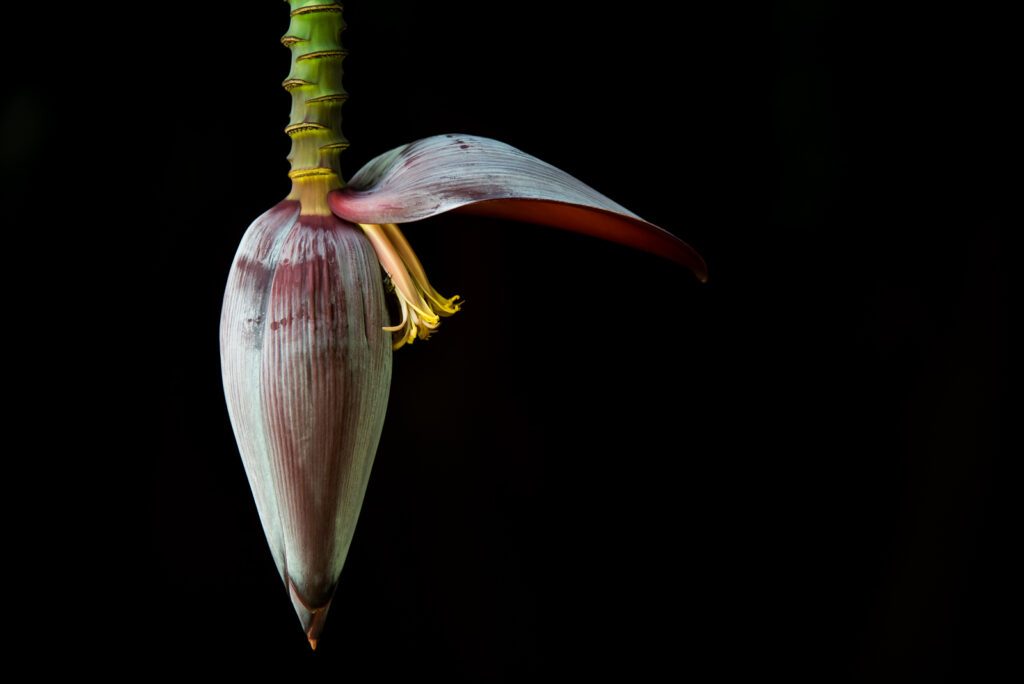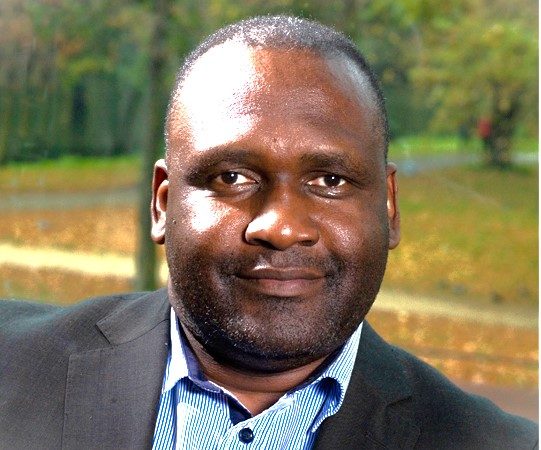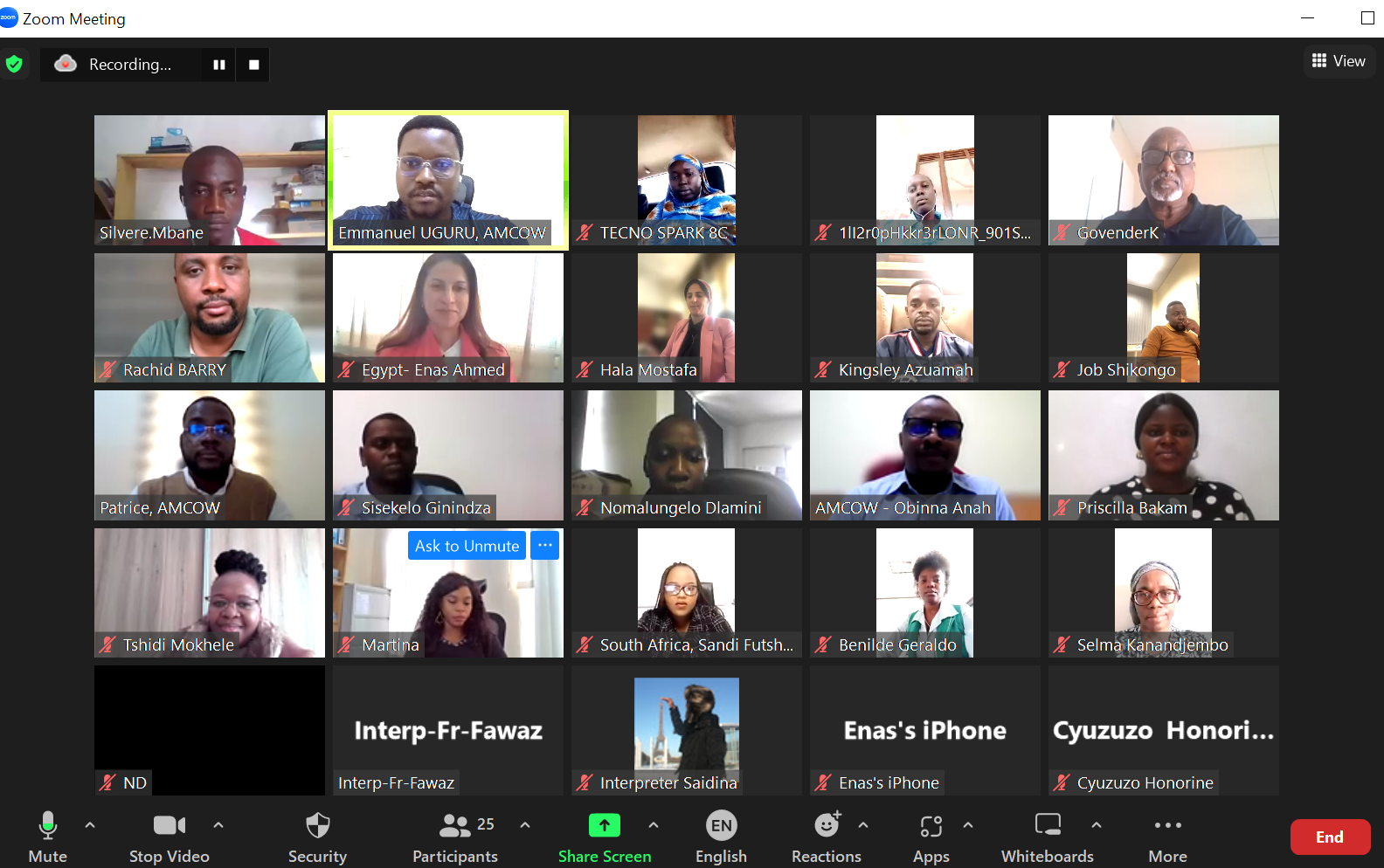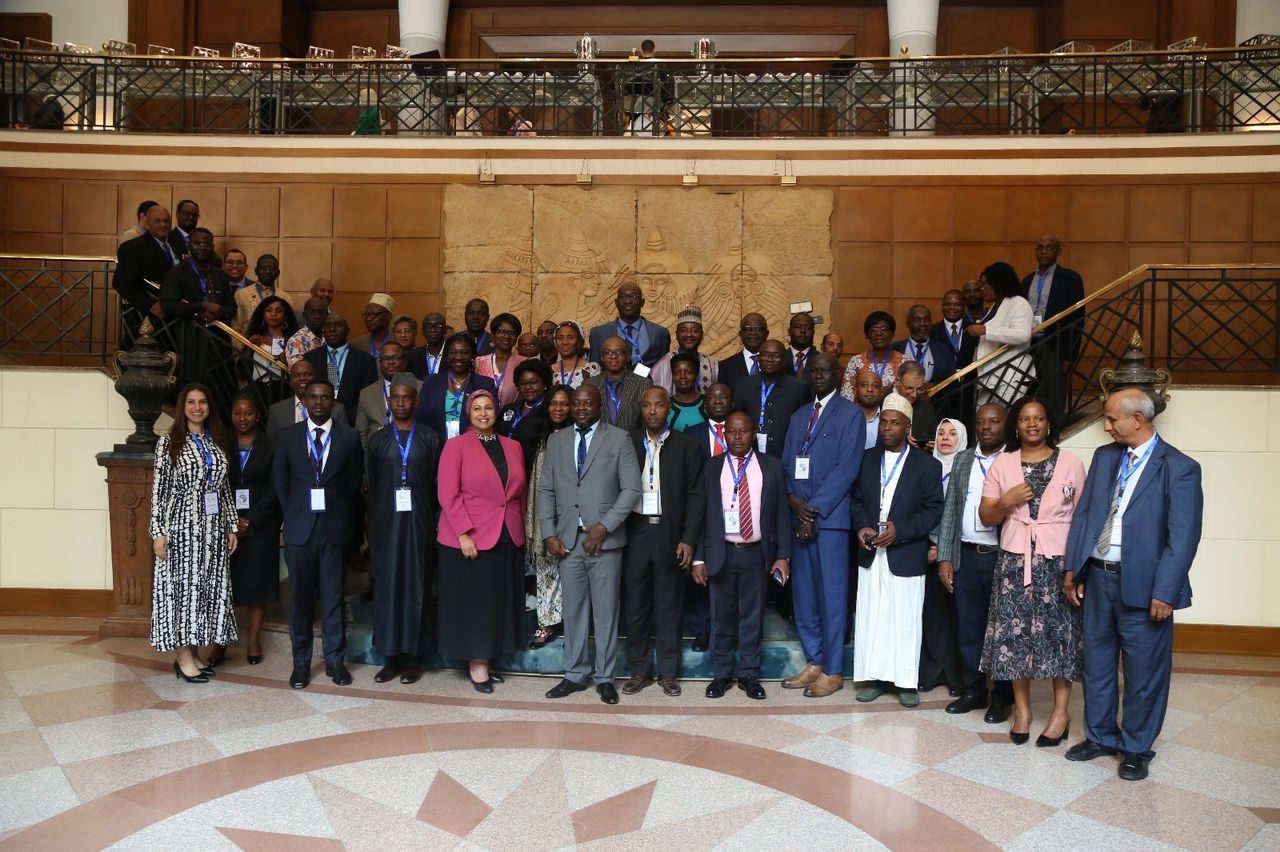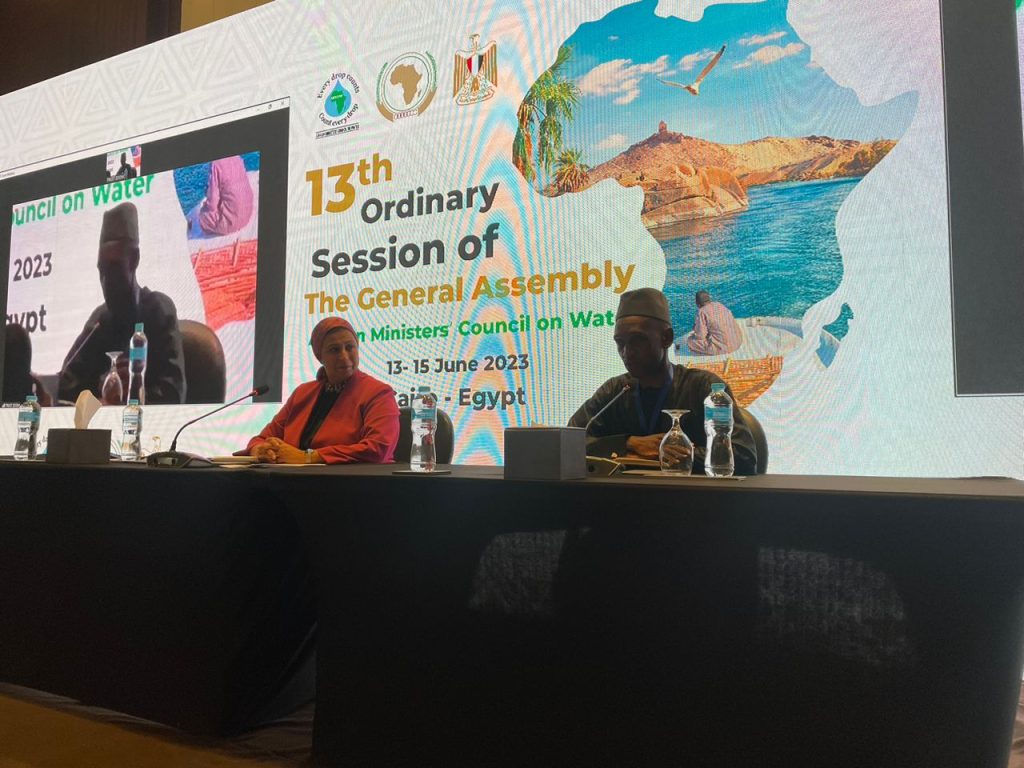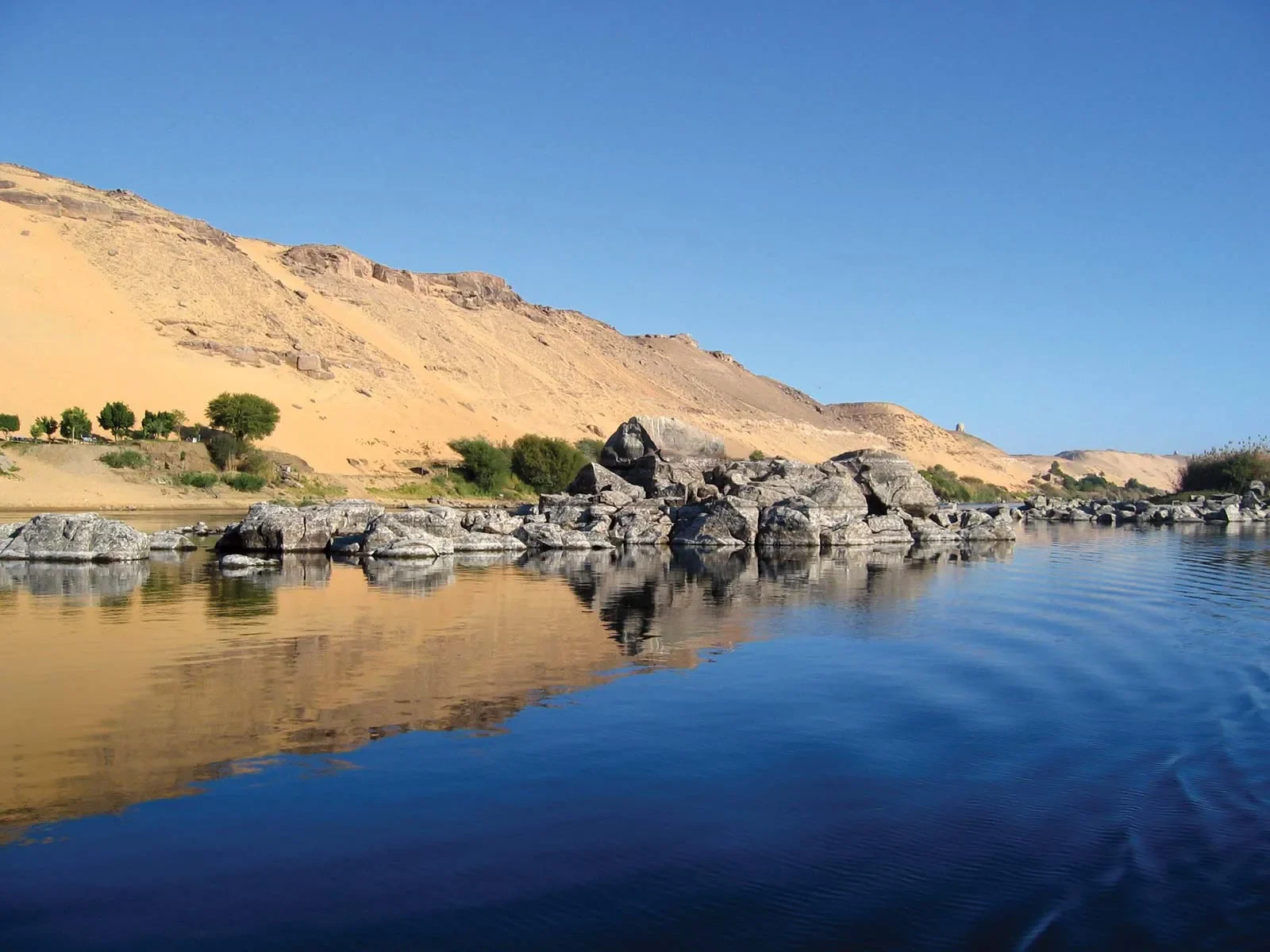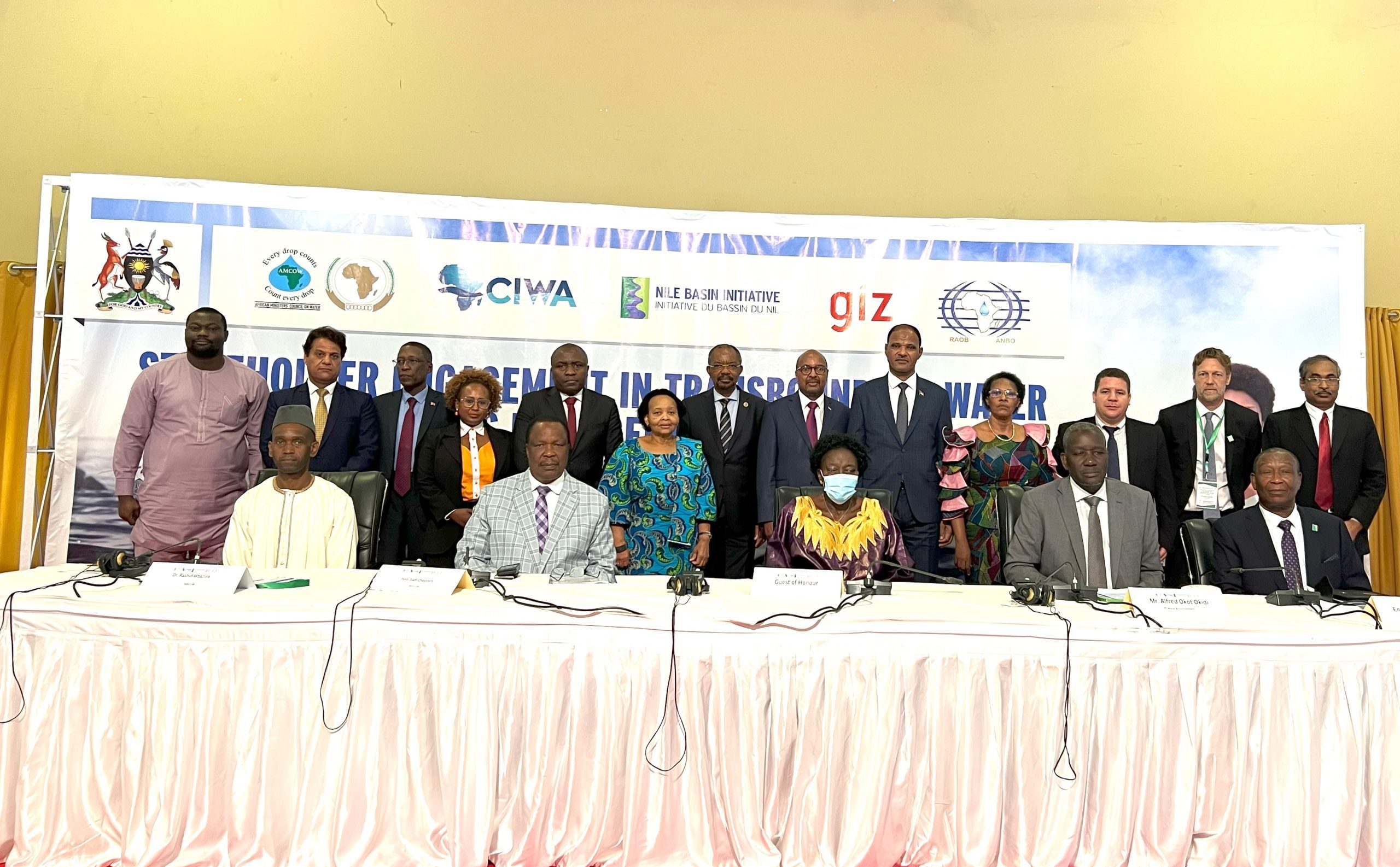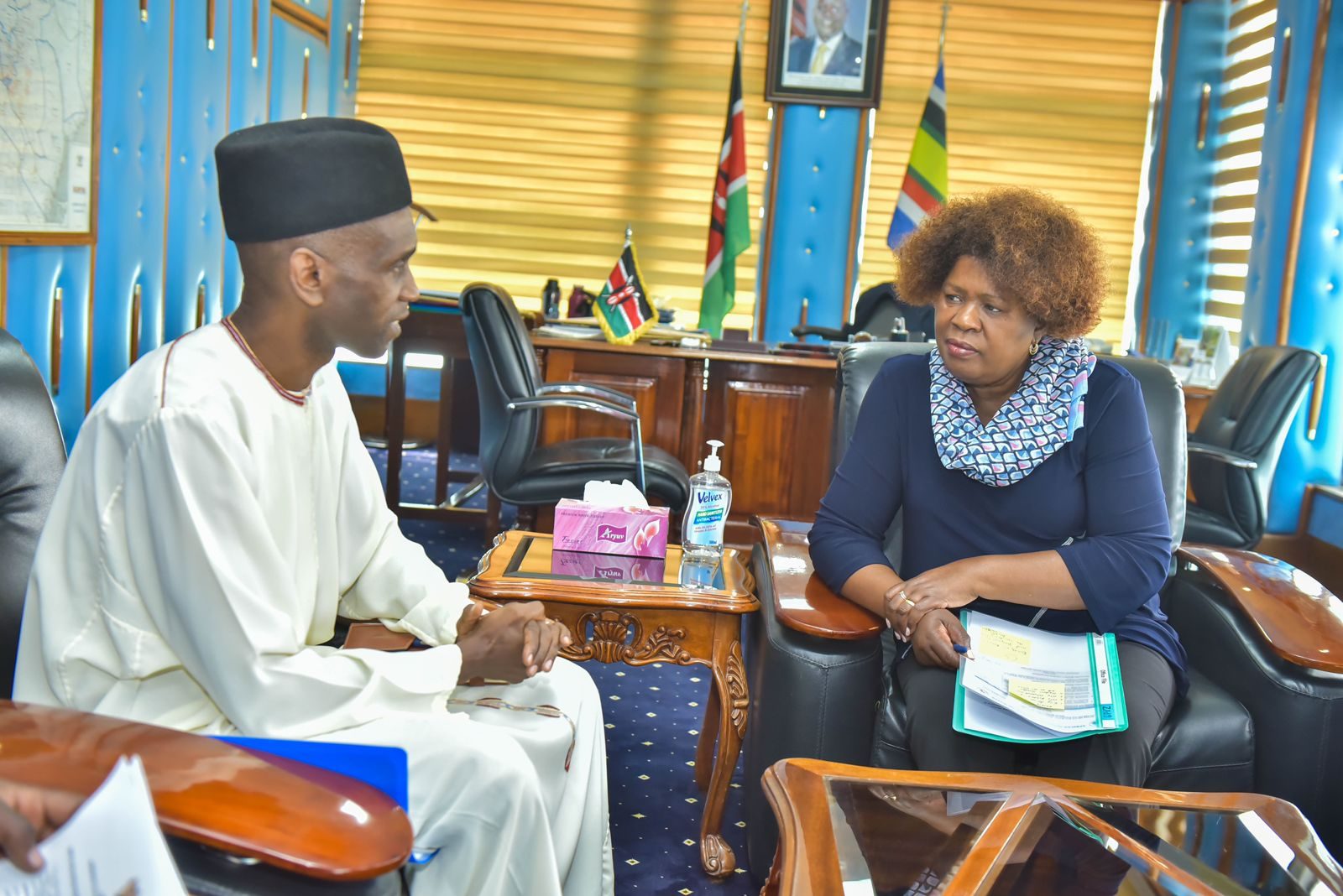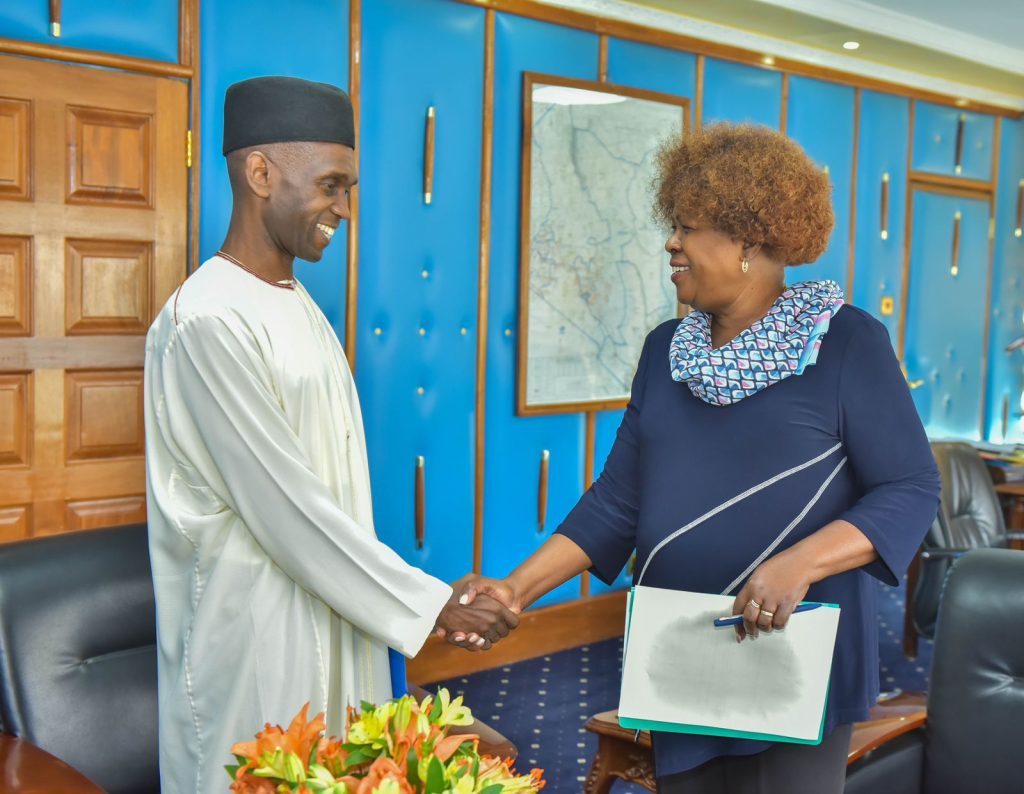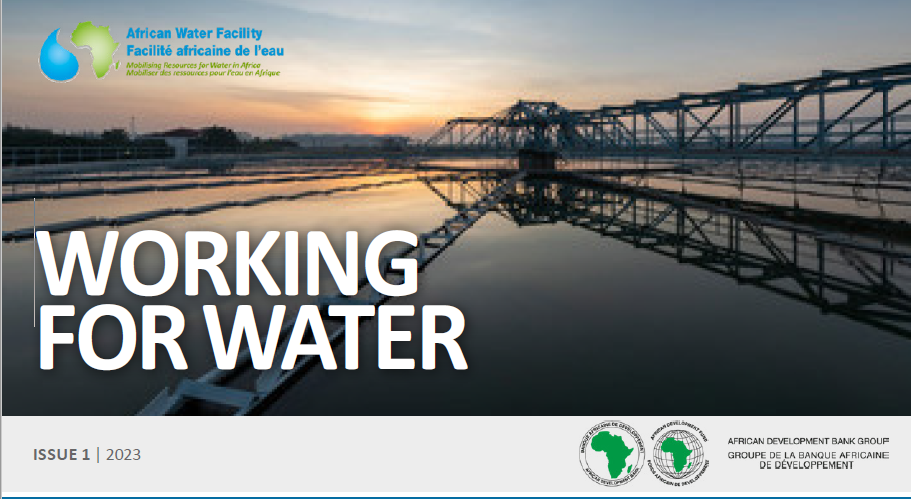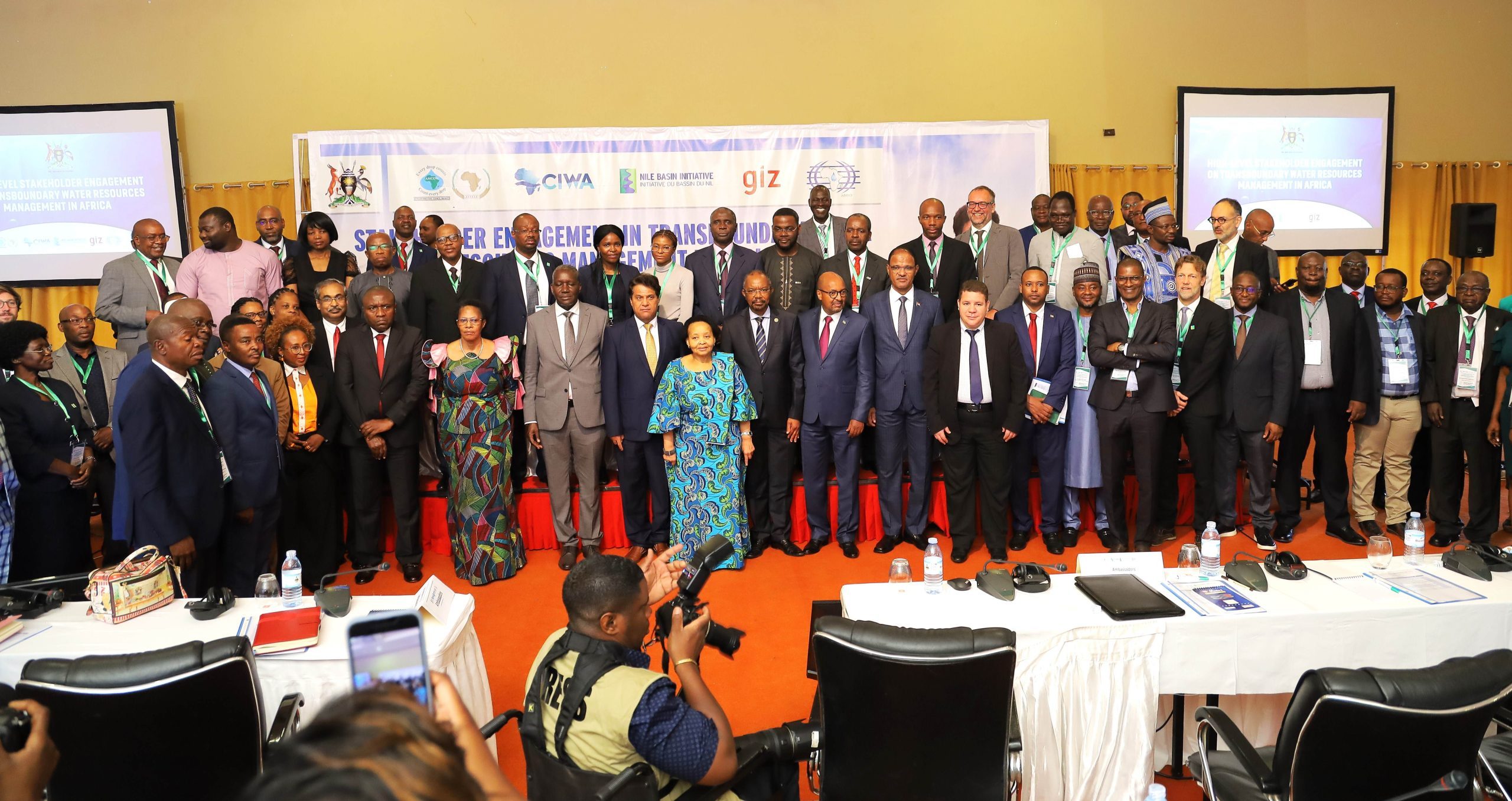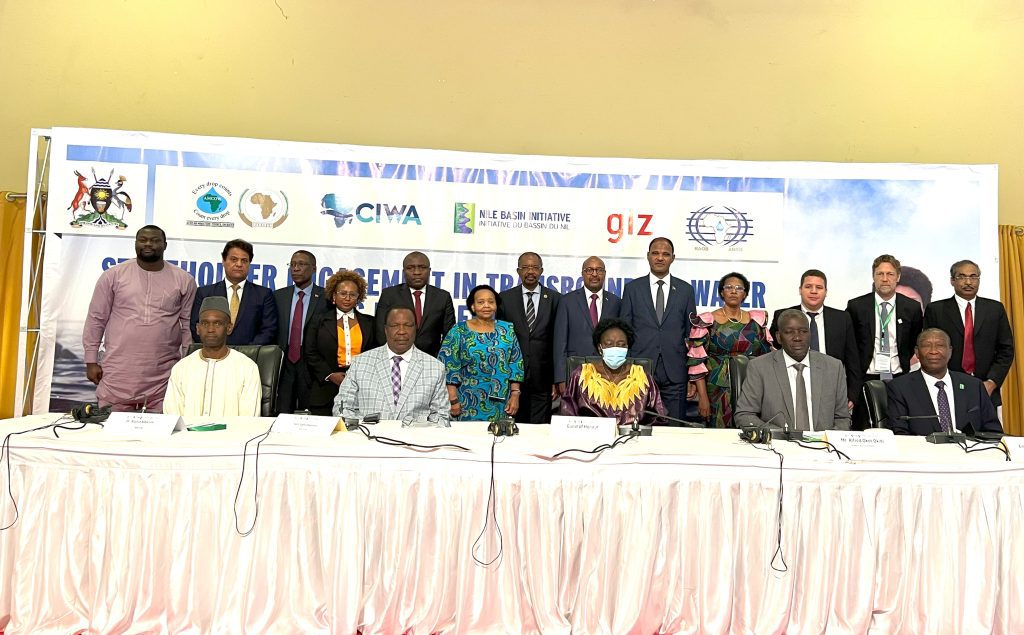Chargé de mission principal, Gestion des ressources en eau
Grade : P4 (dans une grille de gradation professionnelle allant de P1 à P5)
| Contexte de base : AMCOW est une institution intergouvernementale et non budgétaire qui travaille sous l’égide du Comité technique spécialisé sur l’agriculture, le développement rural, l’eau et l’environnement de l’Union africaine (UA). Notre mission est de fournir un leadership politique, une orientation politique et un plaidoyer dans la fourniture, l’utilisation et la gestion des ressources en eau pour un développement social et économique durable et le maintien des écosystèmes africains. Pour plus d’informations, veuillez consulter : http://www.amcow-online.org/. Le poste de Chargé de mission principal, Gestion des ressources en eau, est l’une des principales fonctions de gestion relevant du directeur des programmes au secrétariat de l’AMCOW, situé à Abuja, au Nigeria. L’étendue des responsabilités du poste est décrite ci-dessous. Responsabilités : Le Chargé de mission principal, Gestion des ressources en eau, sera responsable de la programmation et de la coordination de la mise en œuvre des activités du Secrétariat visant à assurer la gestion durable des ressources en eau de l’Afrique. Ses principales responsabilités sont les suivantes : 1) Arrangements politiques, réglementaires et institutionnels : Diriger les initiatives de l’AMCOW visant à renforcer les systèmes de gouvernance de l’eau et les structures de gestion en Afrique. Les interventions connexes promeuvent et facilitent la gestion et la gouvernance transfrontalières des ressources en eau de l’Afrique, axées sur l’investissement. L’accent est mis en particulier sur le respect des engagements pris par les dirigeants politiques africains en vue de : a) augmenter les dotations nationales au secteur de l’eau, de l’assainissement et de l’hygiène, et attirer les investissements pour le développement, l’utilisation et la gestion des ressources en eau. L’une des principales stratégies de l’AMCOW consiste à renforcer les arguments économiques en faveur des investissements dans le secteur de l’eau en Afrique afin d’améliorer les capacités humaines et institutionnelles, de construire des infrastructures et d’améliorer les systèmes d’information à l’appui de la gestion de l’eau ; b) innover dans les mécanismes de gestion de la demande et améliorer l’efficacité de la production, de l’approvisionnement et de l’utilisation de l’eau dans l’agriculture ; c) contribuer à l’amélioration de la gouvernance en matière d’assainissement et des mécanismes de prestation de services en ce qui concerne: i) améliorer l’intégrité environnementale par la gestion des eaux usées et de la qualité de l’eau ii) promouvoir les systèmes circulaires pour les cycles de l’eau urbaine et l’assainissement productif ; et, iii) un programme WASH résilient. d) mobiliser les réseaux d’eau souterraine et les acteurs vers une approche commune, harmonisée et basée sur des preuves de l’utilisation et de la gestion durable des eaux souterraines dans le cadre de la Vision africaine de l’eau 2025, des ODD et de l’Agenda 2063 de l’UA ; e) renforcer les liens institutionnels et les accords opérationnels entre l’AMCOW et ses partenaires techniques, de mise en œuvre et de financement dans le cadre du nexus eau, énergie, alimentation et écosystèmes (WEFE) ; et f) renforcer les mécanismes de suivi du financement du secteur – au niveau de l’AMCOW – et renforcer les mécanismes de coordination, d’effet de levier et d’amélioration de l’efficacité de l’utilisation des fonds de l’aide publique au développement (APD) dans le secteur. 2) Engagement des parties prenantes : Contribuer au renforcement des processus décisionnels en facilitant techniquement l’interaction, à tous les niveaux, des acteurs gouvernementaux et non gouvernementaux, y compris le secteur privé. Le titulaire du poste dirigera les efforts du secrétariat pour traduire le programme d’action prioritaire de l’AMCOW en matière de gestion des ressources en eau en partenariats d’action visant à : a) promouvoir la comptabilité économique de l’eau en tant que discipline pour, entre autres, améliorer les perspectives de financement et d’investissement pour la gestion des ressources en eau en Afrique ; b) motiver les actions visant à améliorer les capacités nationales de collecte de données hydrométéorologiques et piézométriques complètes et fiables dans l’ensemble des 64 bassins fluviaux partagés de l’Afrique ; c) appliquer des solutions fondées sur la perspective du lien entre l’eau, l’alimentation et l’énergie pour assurer la sécurité de l’eau, de l’alimentation et de l’énergie en Afrique ; d) améliorer la gestion de l’eau agricole, notamment en facilitant l’utilisation des déchets comme ressource agricole au niveau national ; e) catalyser la mise en œuvre des projets prioritaires relatifs aux eaux transfrontalières dans le deuxième plan d’action prioritaire du programme pour le développement des infrastructures en Afrique (PIDA) ; f) promouvoir et faciliter le développement multifonctionnel des bassins “verts” axé sur les infrastructures naturelles et construites afin de fournir un continuum de solutions de stockage de l’eau ; g) aider les États membres et les organisations de bassins fluviaux et lacustres à réaliser des évaluations des ressources en eau, en évaluant la disponibilité des ressources en eaux souterraines et l’impact du changement climatique sur la disponibilité de l’eau douce ; h) aider les États membres à surveiller et à gérer l’utilisation des eaux souterraines ; i) promouvoir l’élaboration de cadres juridiques, politiques et institutionnels pour la gestion des eaux usées et le déversement en toute sécurité des effluents dans les cours d’eau et les aquifères transfrontaliers ; j) améliorer l’accès et le contrôle des ressources, des actifs, des capacités, de l’agence et des opportunités pour les groupes vulnérables au climat et marginalisés ; et, k) mobiliser les partenariats institutionnels pour renforcer la sécurité de l’eau. 3) Mobilisation des ressources : Travailler en étroite collaboration avec le Chargé de mission principal – Gouvernance et partenariats pour mobiliser des fonds et coordonner des initiatives à l’appui des activités d’AMCOW. Les activités s’articulent autour des plans de travail du secrétariat, des plans d’engagement avec les partenaires et des projets PIDA-PAP sur les eaux transfrontalières. Les responsabilités du titulaire sont les suivantes : a) instituer des mécanismes pour mettre en œuvre des projets identifiés pour leurs avantages partagés, notamment la capacité d’attirer des investissements : b) l’exploitation des flux de financement des partenaires pour la mise en œuvre du programme de travail de l’AMCOW ; c) diriger la conception et la formulation de plans d’engagement en faveur de la gestion des ressources en eau et coordonner leur mise en œuvre avec les CER, les organisations régionales et locales, les partenaires techniques et de mise en œuvre, ainsi qu’avec d’autres acteurs du secteur ; d) contribuer aux réunions et aux engagements du cadre de coordination des partenaires au développement du secteur de l’eau et de l’assainissement (CCPD). Les autres responsabilités comprennent, sans s’y limiter à : 1) Renforcer la présence et la visibilité d’AMCOW au niveau national et régional, dans le but de promouvoir des outils de prise de décision efficaces et des informations utiles sur la gestion durable des ressources en eau sur le continent. 2) Promouvoir les synergies régionales et les efforts nationaux en matière de gestion des ressources en eau et institutionnaliser les mécanismes de coordination de la gestion des ressources en eau au sein du Secrétariat. Plus précisément, le chargé de mission principal, Gestion des ressources en eau, est responsable de la gestion des activités clés suivantes : 1) Assurer une utilisation et une visibilité cohérentes et appropriées de la marque AMCOW en améliorant les activités, l’efficacité et la portée de la gestion des ressources en eau, afin de renforcer la sensibilisation et la compréhension des questions de gestion des ressources en eau parmi les parties prenantes par le biais d’événements nationaux, régionaux et grand public tels que la Semaine africaine de l’eau et les Conférences AfricaSan ; Collaborer avec le responsable de la gestion des connaissances et de la communication pour préparer les communiqués de presse et les messages d’interview, ainsi que pour coordonner, relire et assurer la diffusion du contenu des bulletins d’information d’AMCOW et d’autres types de matériel d’apprentissage et de documents politiques. Caractéristiques essentielles: 1) Au moins 12 ans d’expérience professionnelle, de préférence dans le secteur de l’eau, dont au moins 6 ans d’expérience dans la gestion intégrée des ressources en eau (GIRE), l’analyse de la sécurité de l’eau, la planification et le plaidoyer. 2) Expérience directe ou expérience de travail avec des partenaires soutenant les initiatives politiques liées à la GIRE et les programmes de travail de la CUA, du secrétariat de l’AMCOW, de l’AUDA-NEPAD, des CER et des organismes régionaux de bassin. 3) Engagement avéré en faveur de l’excellence et de la qualité des résultats mesurés, du développement et de l’opérationnalisation des programmes dans un cadre intergouvernemental. 4) Une expérience probante dans les domaines suivants : a) la facilitation efficace des processus techniques et la coordination des processus multipartites à forte visibilité ; b) la fixation de priorités et l’élaboration de dispositions de mise en œuvre dans des environnements opérationnels politiquement sensibles et techniquement exigeants ; et, c) la responsabilité technique de la qualité et du contenu des rapports d’aide à la décision au niveau politique. 5) Excellentes compétences en matière de diplomatie et d’établissement de relations, avec une capacité à établir des priorités, à négocier et à travailler avec une variété de partenaires techniques, de mise en œuvre et de développement interculturels et de haut niveau, ainsi qu’avec les États membres. Aptitude à effectuer plusieurs tâches à la fois, capable de porter plusieurs chapeaux dans un environnement rapide, stimulant et gratifiant. Formation, qualifications professionnelles et certification : Un master ou un doctorat dans un domaine lié à la gestion de l’eau et des ressources naturelles connexes, à l’ingénierie et à la fourniture de services d’approvisionnement en eau, d’assainissement et d’hygiène. Exigences linguistiques : Maîtrise courante et avancée de l’anglais et/ou du français grâce à l’éducation et à l’expérience dans un contexte professionnel. La maîtrise du portugais et/ou de l’arabe serait un atout Compétences : 1) Solides compétences proactives en matière de développement commercial. 2) Compétences supérieures en matière de communication et de présentation. 3) Diplomatie et capacité de persuasion très raffinées. 4) Très bonnes aptitudes à l’apprentissage et au partage des connaissances. 5) Solides compétences en matière de constitution d’équipes et de motivation. Compétences informatiques : 1) Utilisation experte de la suite d’applications Office (Word, Excel, PowerPoint). 2) Familiarité avec les outils de gestion de projet. 3) Bonne connaissance et, de préférence, expérience professionnelle des technologies basées sur l’informatique en nuage. Conditions d’âge : Le candidat ne doit pas être âgé de plus de 55 ans à la date du 1er août 2023. Valeurs : 1) Une éthique professionnelle élevée au-delà de la conformité légale. 2) Engagement envers le bien public. 3) Engagement en faveur de la qualité et de l’excellence, du partage des connaissances et du maintien de la confiance du public. 4) Responsabilité envers le secrétariat d’AMCOW, les États membres de l’UA et les partenaires et parties prenantes d’AMCOW. 5) Transparence, honnêteté et intégrité, y compris ouverture et flexibilité interculturelles. Conditions de citoyenneté : Le ou la candidat/e doit être un/e ressortissant/e d’un des États membres de l’UA Les candidats intéressés par ce poste doivent soumettre leur candidature officielle au plus tard le 31 août 2023 à l’adresse électronique suivante : Dépôt des candidatures Le Secrétaire exécutif, Conseil des ministres africains chargés de l’eau (AMCOW), No. 11, T.Y. Danjuma Street, Asokoro District, Abuja, Nigeria . Email : info@amcow-online.org; Les candidatures féminines sont vivement encouragées. Veuillez noter que seuls les candidats présélectionnés seront contactés. |
